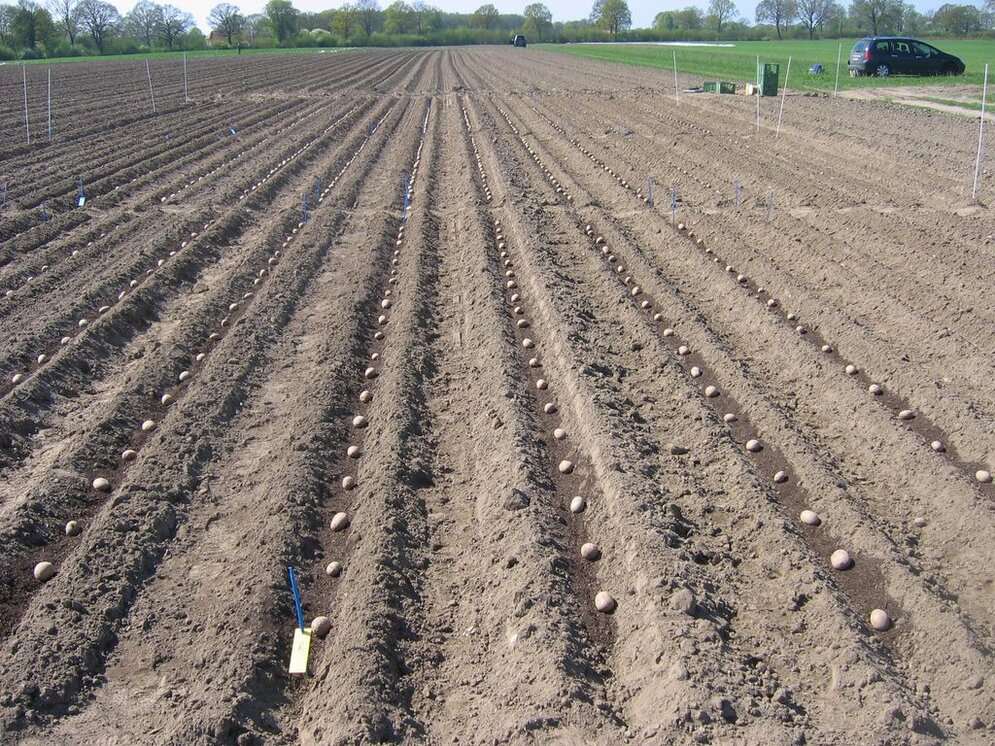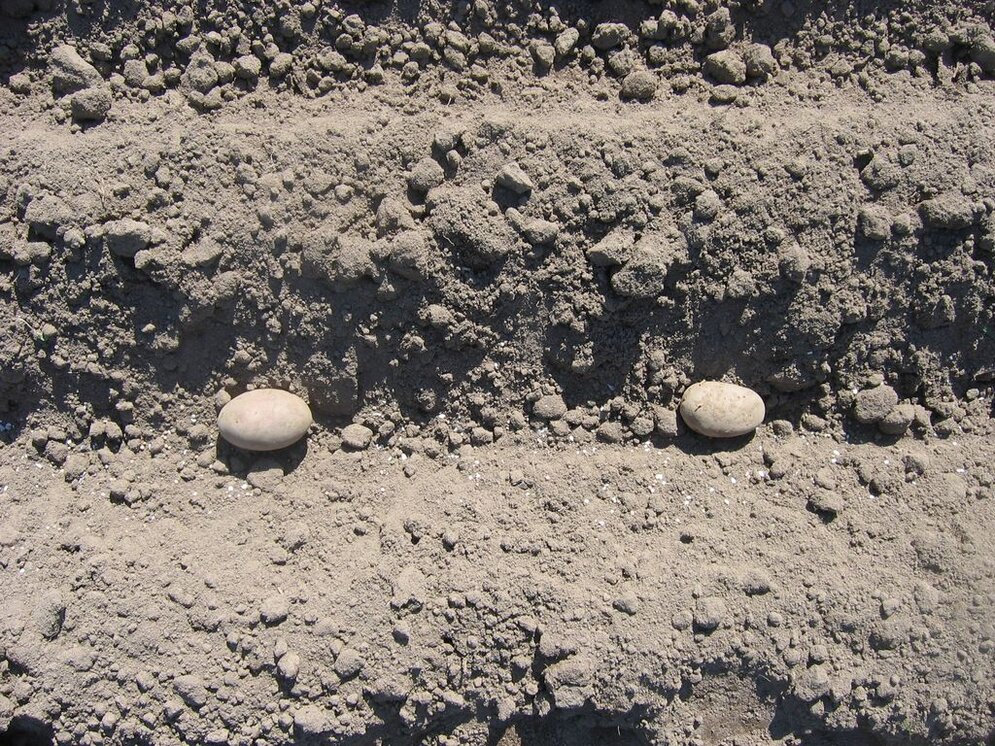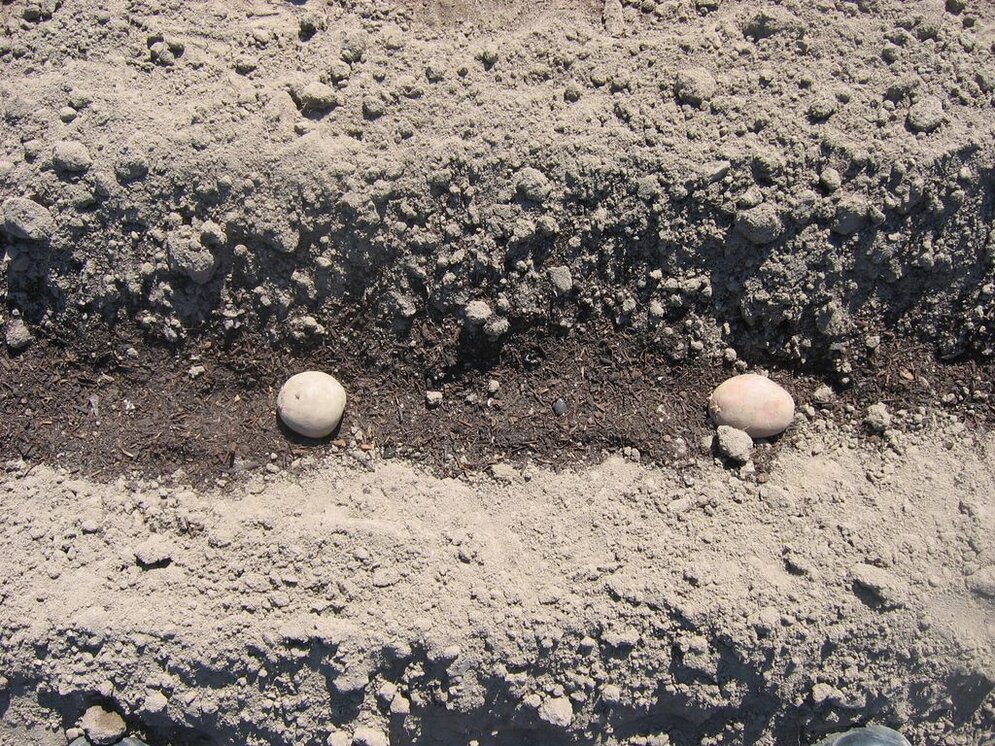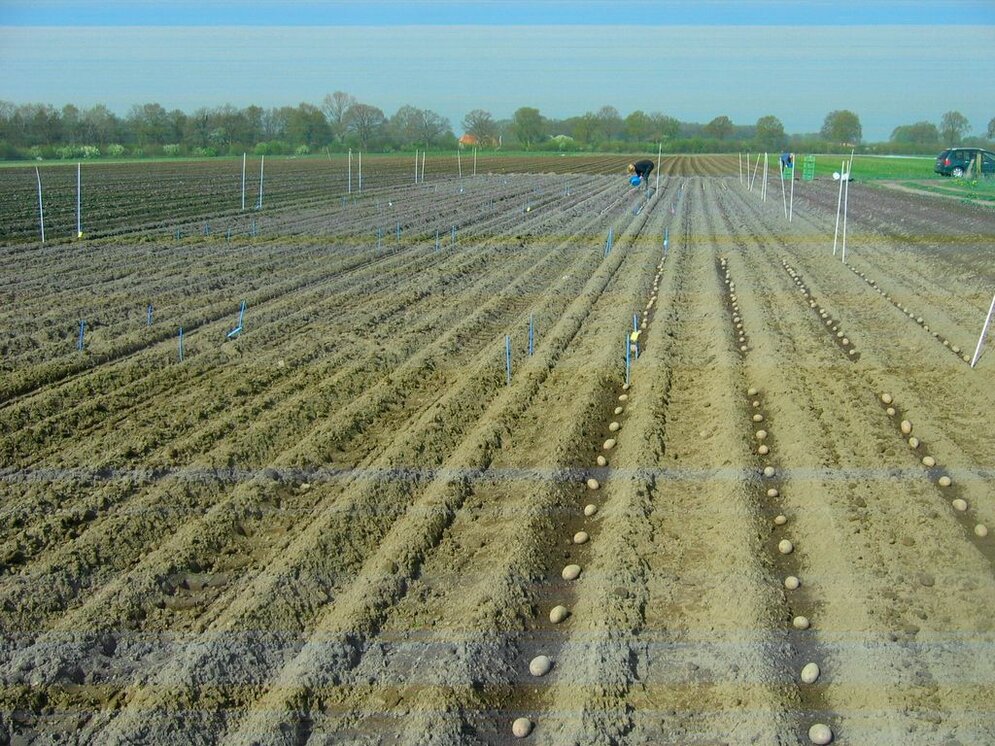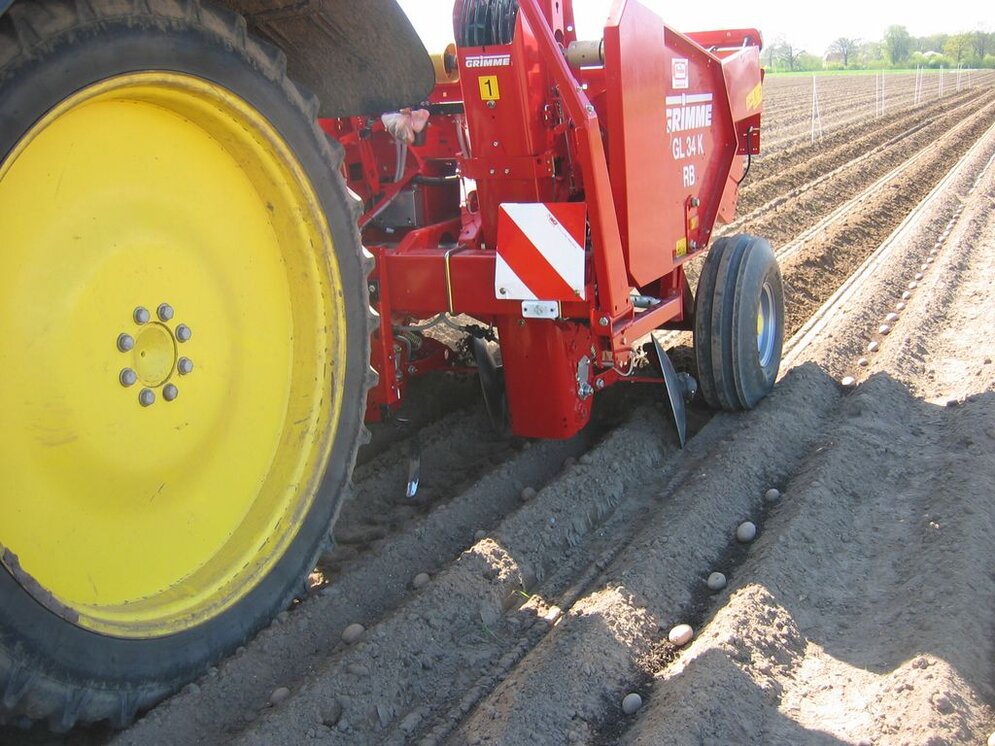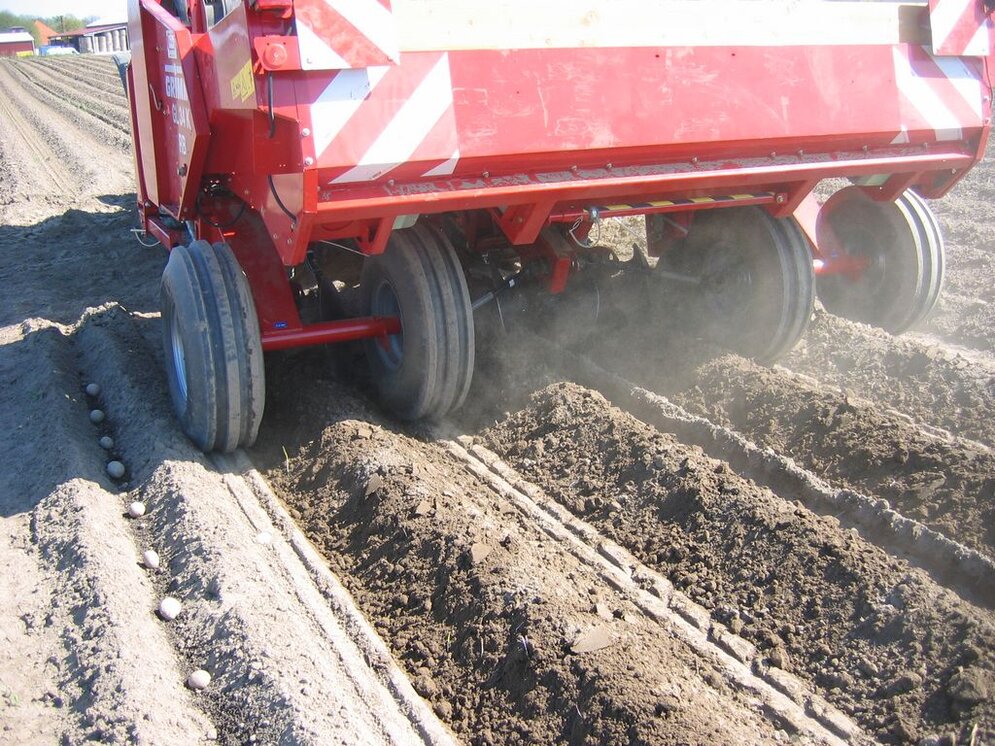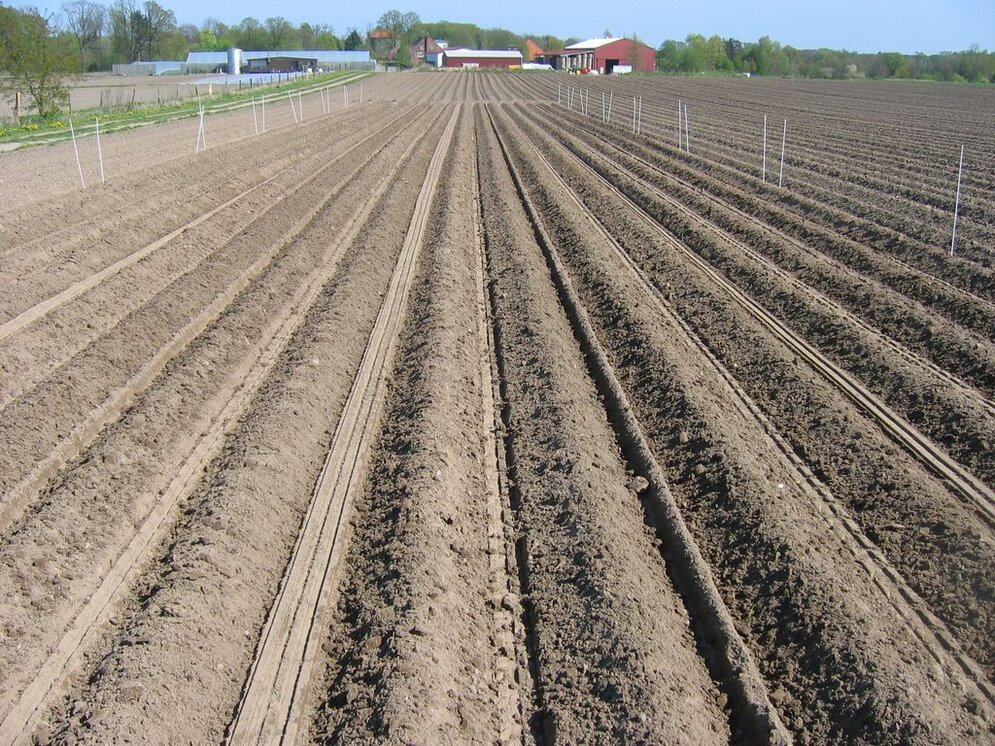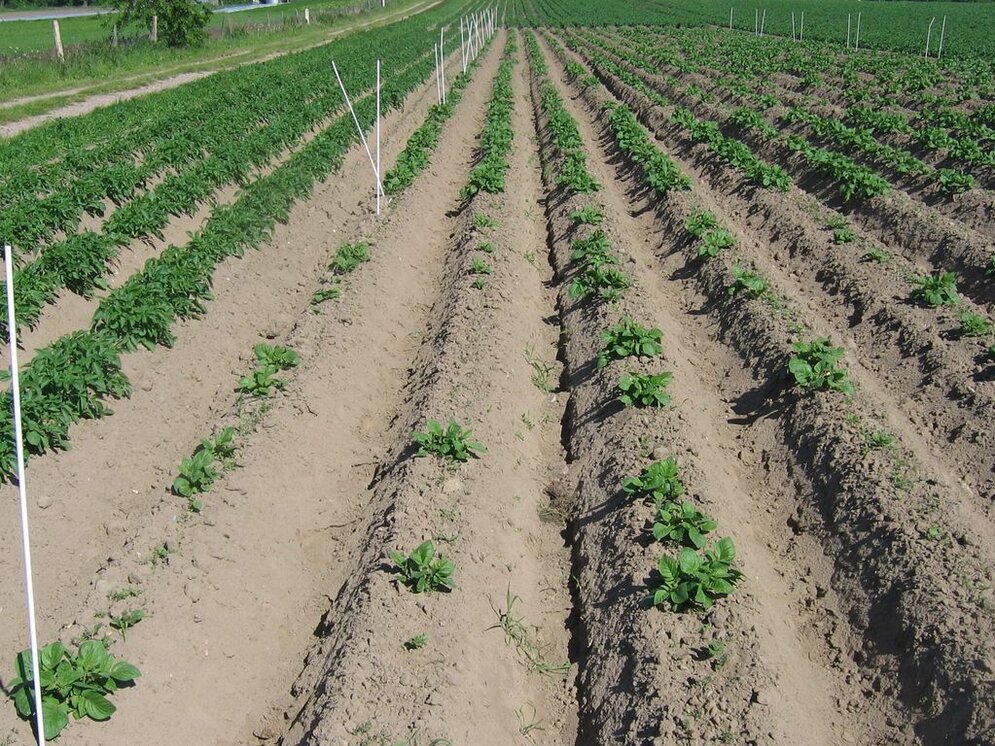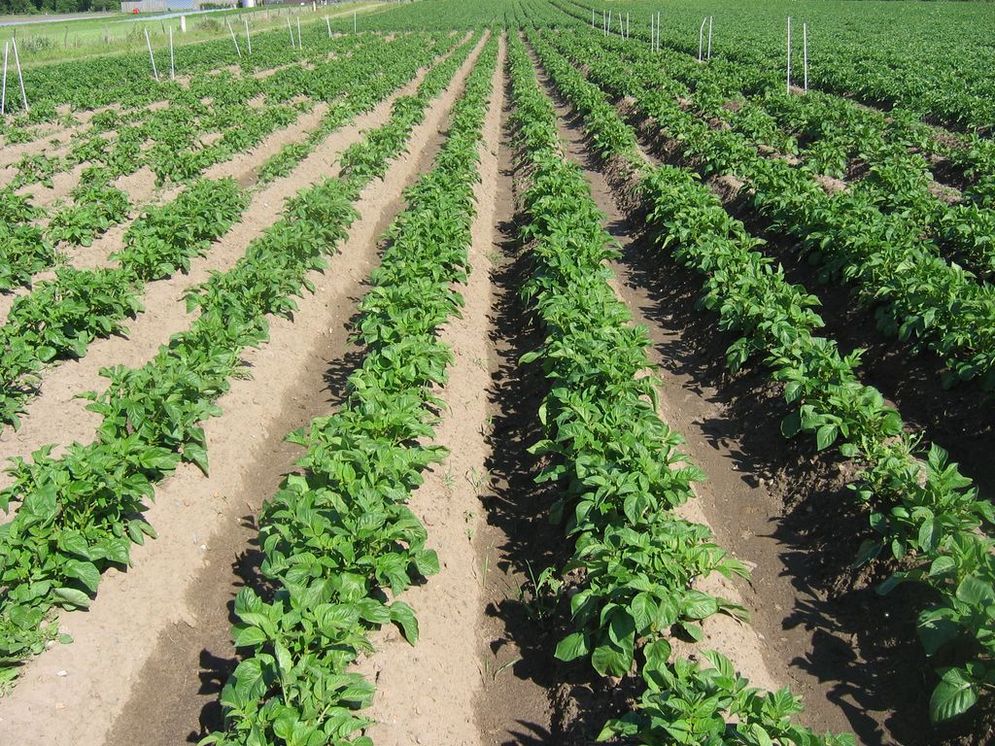Results
The results often showed positive effects of compost use, but they were not significant for all the tested parameters. So the fertilization with compost slightly improved the germination rate of the potato plants, and the number of tubers as well as the number of stems per plant was slightly increased. Particularly significant were the positive effects of compost in the evaluations of the harvested tubers for all the collected parameters. Potato yield was higher after compost application. The three different composts showed some differences, but these were rarely significant and not uniform. It can be concluded that the compost quality could have an influence, but different origins do not lead in principle to different results. A general statement cannot be derived from this one-year field trial. Systematic studies with different origins and types of composts and different degrees of composting would be necessary for conclusive statements.
An obvious and significant effect is based on the different infestation levels of the seed potatoes with R. solani. The results show that seed potatoes with a low infestation level are essential for a successful potato growing and potatoes with a good external quality.
That means that organic potato producers must pay attention to a good quality of the seed potatoes. Just as a high virus infection is a reason for the withdrawal of seed potatoes, an appropriate scheme for the infection with R. solani should be included in the law for seed certification. Also a quality management for the production of organically produced seed potato is needed to ensure all preventive measures of plant cultivation for the production of healthy seed potatoes.
The fungus Rhizoctonia solani causes various symptoms in potatoes, including black scurf, stem and stolon cankers on underground stems and stolons, and is a well-known, increasing problem in the cultivation of organic potatoes. Farmers suffer significant economic losses because highly infested potatoes are not marketable. This increasingly affects also the organic seed potatoes: if seed potatoes are infested by Rhizoctonia, the resulting potato harvest is also much more strongly infected.
Background and Objective
Field trials at the University of Kassel-Witzenhausen have shown a clear reduction of Rhizoctonia solani after the application of compost made of green material or separate collection of bio-waste. Therefore our aim was to verify the results available so far in a next step at another trial site with different climate and soil conditions. It is also necessary to test different origins, resp. types of composts, to quantify the effect, depending on the compost quality or other factors such as rotting duration, the raw material, etc., to the maximum possible extent.
Approach
We tested on a light, organically managed site (podzol, loamy sand, soil rating: 20-25 points) on the one hand, composts of three different origins (two composts made of green material, one compost of separate collection of bio-waste) as compared to a control treatment, and, on the other hand, seed potatoes with different levels of infestation caused by Rhizoctonia. The compost was applied directly before planting into the planting furrow at an amount of 5 t ha-1 compost (based on DM). Secondly, the used variety Laura was infected with less than 1% or with an infestation level between 1-5% of Rhizoctonia sclerotia. The field trial was carried out according to the EPPO Guideline PP 1/32 (2) - Rhizoctonia solani on potatoes F. 04 D.

![[Translate to English:] [Translate to English:]](/media/_processed_/8/e/csm_Bildschirmfoto_2021-03-03_bearb_fc48ac88bf.jpeg)
![[Translate to English:] [Translate to English:]](/media/_processed_/8/e/csm_Bildschirmfoto_2021-03-03_bearb_ba3ec0e9d7.jpeg)
